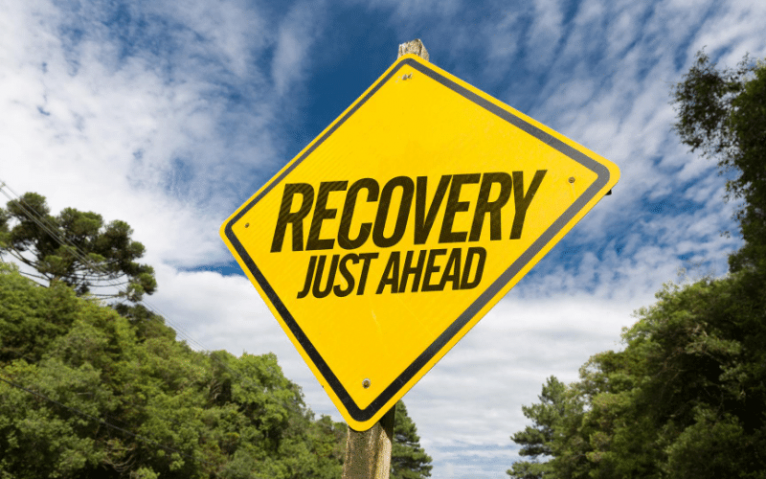People think addiction recovery starts and ends by seeking treatment. However, the truth is very different. The first step to recovery might be seeking treatment, but addiction recovery is a lifelong journey that never ends. Many drug and alcohol addicts find themselves in and out of rehab throughout their recovery journey. Around 40 to 60 percent of those who seek addiction treatment will relapse, hence why people say addiction recovery is a lifelong journey.
What’s the Recovery Process Like?
Early addiction recovery is crucial to the overall process of recovery from drug and alcohol addiction. Usually, it is the foundation laid that will set the tone for the remainder of one’s sobriety. In most cases, early addiction recovery fits into several crucial segments and stages.
Medical Detox
Medically monitored detox is crucial to early addiction recovery. Often this stage is required during the withdrawal phase of dependency. When an individual ceases using drugs or alcohol abruptly, they will inevitably experience severe withdrawal symptoms. Medical detox clinics keep patients physically safe, prescribing any medication necessary to avoid potentially life-threatening symptoms.
Inpatient Rehab
Inpatient drug rehab is where the treatment process begins. Patients will undergo a rigorous, therapeutically-centered schedule, geared towards uncovering and addressing underlying causes of substance dependency while treating any co-occurring mental health disorders.
The goal of inpatient treatment is to get all of the intricate therapeutic work completed in a safe and secure environment while introducing clients to the program of recovery. Additionally, to instill all of the tools and coping mechanisms necessary to maintain sobriety.
Outpatient Rehab
Outpatient drug rehab is the next step during early addiction recovery. It usually entails an extended stay at a halfway house or sober living facility. Additionally, the duration ranges from 30 days to 9 months. Those who spend longer periods in halfway have more success in maintaining long-term sobriety.
Thus, halfway houses allow patients higher levels of personal responsibility and freedom while maintaining a certain level of accountability. As a result, this level of care provides a transition into everyday life without the use of drugs or alcohol during early addiction recovery.
Continual Aftercare and Support
Continual aftercare is the portion of the process that requires regular and frequent upkeep. For most recovering addicts and alcoholics, aftercare is a highly personalized and unique experience. The trick is finding what works for you and sticking to it.
For many individuals, continual aftercare comes in the form of a 12-step program of recovery and support groups. The amount of dedication a program of recovery requires will vary from individual to individual. Take time to develop yours, and try to remember to trust in the process.
Depending on the individual, more stages may be required and for varying lengths of time. For example, individuals with co-occurring psychological disorders may need to complete partial hospitalization programs or dual diagnosis treatment programs.
The Many Challenges of Early Recovery
The early stages of recovery are the hardest ones. After someone completes detox and other medical treatments, the mental aspect of beating addiction kicks in. Whether someone moves to an outpatient treatment program setting, they’re likely to struggle with:
- Proximity to environments that promote drug or alcohol abuse
- Finding the strength to practice physical and mental coping strategies
- The best way to change routines and habits
Also, early recovery is a very vulnerable state as people begin transitioning into sober living. To guarantee long term sobriety, people must excel at various skills, including:
- Identifying triggers that might lead to relapse
- Establishing new routines and healthy habits
- Engaging in self-care and coping mechanisms
- Knowing when you ask for help
- Practicing relaxation and de-stressing techniques
All of these practices can help prevent a relapse episode. Because it’s impossible to know when you’ll experience a relapse, people say addiction recovery is a lifelong journey.
Finding Long-term Recovery
Addiction is a chronic disease, and people struggle with substance abuse for a myriad of reasons. The early stages of addiction recovery can be challenging. Coping with stress, anxiety, depression, co-occurring disorders, and other ailments can make the recovery process even more challenging.
Finding long-term recovery heavily depends on finding a reliable support system. Enrolling in an aftercare addiction recovery program can help those in recovery find the support they need to go back to their daily responsibilities.
At Lighthouse Recovery Institute, we believe drug addiction recovery is a lifelong journey, which is why we’re there for our patients throughout their road to recovery and well after completing treatment. Our doors are always open to offer support, guidance, and relapse prevention strategies.





